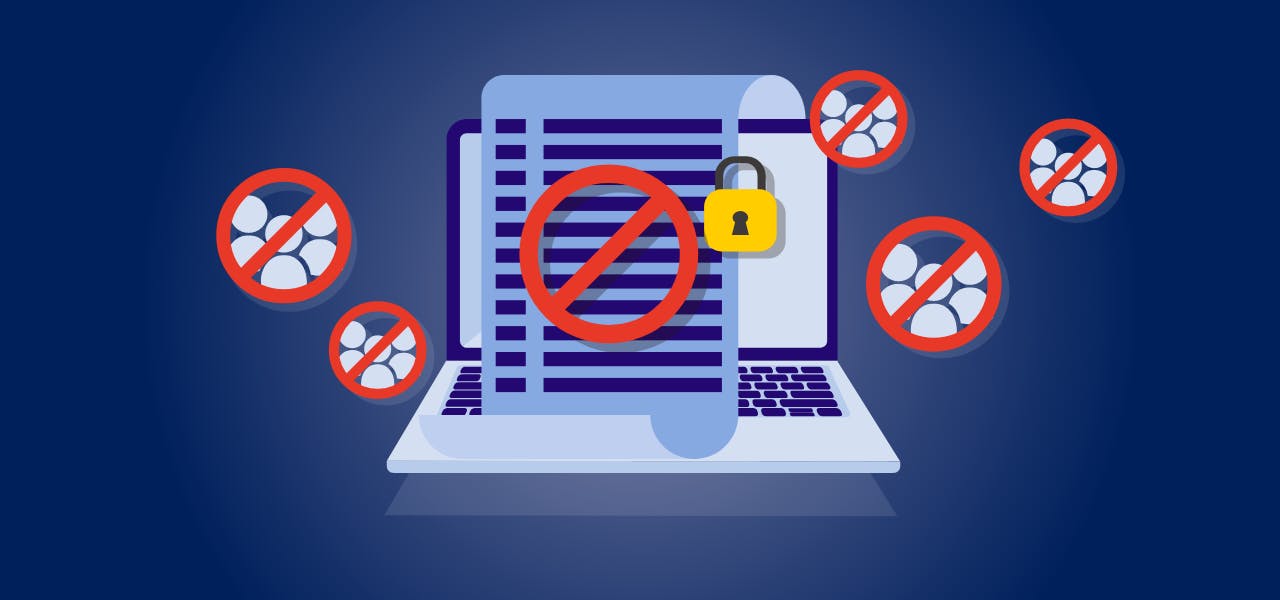Blacklisting has negative connotations with it, but it’s a practice that exists across industries around the world. It’s a controversial method used to prevent someone from achieving a job or higher status in their field, and in the academic landscape, it’s common practice when the outcomes of a researcher’s reports aren’t in line with what’s expected or considered societal norms.
The problem with academic blacklisting is that it goes beyond the one article or experiment that is contested and affects the scholar’s entire reputation, even if it prior to that instance it had been impeccable. Blacklisted scholars have trouble finding work in reputable institutions or getting their research published by legitimate sources. The idea of blacklisting is as old as time, but not everyone has the same opinion on its use and effectiveness.
What Does Blacklisting in Research Involve?
The literal definition of blacklisting involves the creation of names on a list that include people who are to be shunned from participation in a particular group. When it involves research blacklisting in academia, the reach is long with a domino effect of consequences.
Certain areas of research receive more attention and respect than others. These areas, such as education, economics, and technology, also tend to attract more funding sources. But other, less respected forms of research exist, too, and when a scholar attempts to promote their work when the outcome is seen as less than credible or in direct opposition to accepted practices and theories, that research can be enough to cause the scholar to be blacklisted in their field.
With academics, though, the field stretches to the entire landscape, and a blacklisted researcher may find themselves struggling to attain even the simplest teaching positions or faculty-level work.
The Advantages of Blacklisting
While blacklisting is considered a controversial practice, there are times when it works to the advantage of society in general and academia specifically. When a topic is so relevant to the safety of the public, a researcher being blacklisted is a loud, impactful way to get the point across that what they did or said was not acceptable.
For instance, the #metoo movement brought out a lot of skeletons in the closet for some up-til-then highly respected professors. The accusations that had evidence supporting them ensured those scholars were blacklisted from working in the academic arena, even if they didn’t face jail time or further consequences.
Since the field of academics is expected to be above reproach, these blacklisted names were widely known and the coverage was widespread enough for the public to see that educators were not accepting of the actions of those involved and would not embrace them back into the academic fold.
Concerns About the Permanent Consequences of Blacklisting
The advantages are significant when it comes to making a point that certain actions would not be tolerated, but there are concerns, too, about the permanent consequences of blacklisting.
Some blacklisted research is added to the list because it protests the status quo. Researchers ask questions that shake up the way society looks at a certain, otherwise agreed upon topic, and they create waves with their questions and answers.
In industries like pharmaceuticals and education, these questions can cause problems that become pricey to the manufactures of prescription medications or the publishing companies in academic fields.
If a company has enough pull, power, and resources, they can, in effect, have the researcher’s work blacklisted as non-reputable, and the researcher goes down with their outcomes. Because the scholarly rating of an academic is based highly on citation indicators of legitimacy, one blacklisted article, even if the researcher isn’t entirely disproven, can cause a significant drop in their respectability and ability to obtain reputable work for the rest of their academic career.
The consequences of blacklisting can be permanent and dangerous, and those who control the list have the power. It’s an area that requires full understanding without blinders in order to shape the positive or negative outlook on the topic.
Publish With Impactio for a Higher Impact
When you want to demonstrate professionalism and authority on a subject, it starts with the program you use to compile your final submission. Impactio was designed for academic experts, so it does the hard work for you. With Impactio, you can track your work’s impact through citation indicators and connect with peers on the Impactio network. As you build up your own academic profile and scholarly reputation, you can reduce the pressure of potential loss of credibility by turning to Impactio as the program you trust.
